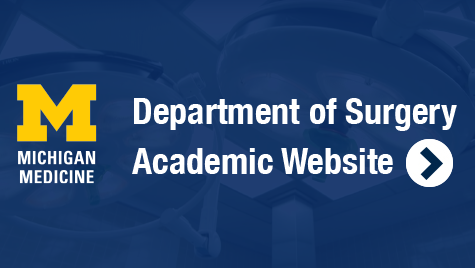One subject of research conducted in the Transplantation Biology Program, led by Marilia Cascalho, M.D., Ph.D. and Jeffrey L. Platt, M.D., concerns the development of novel approaches to replacing the function of organs and tissues that have been destroyed or that suffer inherited or acquired defects in function. For example, members of the program pioneered the genetic engineering of animals to facilitate xenotransplantation of animal organs and tissues into human patients for treatment of disease. Members of the program also pioneered efforts, including genetic engineering, to use of animals as biological vessels in which human stem cells that could be coaxed and nurtured to generate human organs and tissues for transplantation.
Another subject of research in the Transplantation Biology Program concerns the discovery of genetic and acquired factors that govern the success and failure of organ transplants. As one example, members of the program discovered the set of processes through which normal tissues acquire resistance to injury caused by immunity, inflammation and physical injury. These processes, called accommodation, are observed in organ transplants and cancers and work is now directed at devising therapeutics that would elicit accommodation in transplantation and autoimmunity and suppress it in cancer.
Recently, members of the program have discovered several complexes of genes and proteins that govern the balance between immunity and tolerance. These discoveries are presently being tested for ability to distinguish transplant recipients especially likely to suffer rejection from recipients that may experience stable graft function and absence of rejection for long periods of time. The discoveries have also been used to design therapeutics that might decrease the propensity for damaging immune responses in transplantation and other therapeutics that might amplify the intensity of immunity in cancer and infectious disease.
Recognizing that infection by mutable virus remains a serious menace to humanity, members of the program explore the mechanism of immunoglobulin somatic hypermutation to fashion a dynamic vaccine against HIV (the “mutable” vaccine). The mutable vaccine produces variants of antigens in vaccinated individuals which in turn evoke immunity. With time hosts develop broadly reactive immunity that will anticipate natural variants of the virus upon infection blocking viral diversification and allowing sterilizing immunity to develop.
Research in the program spans multiple disciplines—immunology, physiology, infectious disease, genetics, stem cell biology and experimental surgery—and addresses a broad range of questions, for example:
- What controls the pathogenicity of immunity in normal tissues?
- How do foreign cells and microorganisms activate the immune system, and how does the activated immune system control the growth of microorganisms and injure transplants?
- How might stem cells, xenografts and organogenesis augment rather than replace the function of failing organs?


